Sex, lies and crude oil
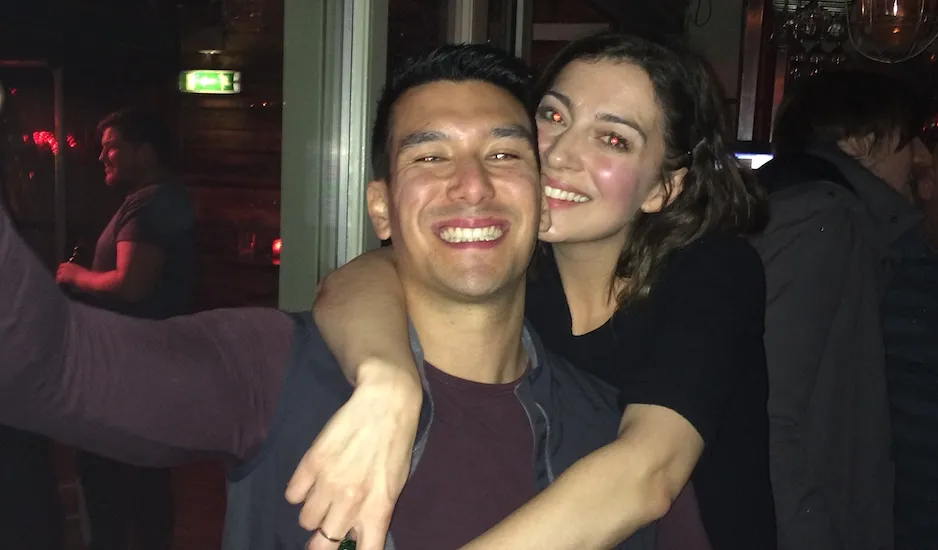
Wirral-born writer Tabitha Lasley headed to the North Sea rigs to find work — with life-changing consequences
We’re discussing the lifelong damage an all-girls’ school can wreak. “They make you quite obsessed with boys, I think,” Tabitha Lasley, the Wirral-born writer — and fellow survivor of a single-sex education — tells me. “The idea is to try and keep you away from boys, but it ends up having the opposite effect.”
Which might explain the question posed by Lasley’s excellent debut, Sea State: What are men like when there are no women around? In an attempt to answer her own question, she heads from London to Aberdeen in 2015, where she had thought she might secure a job on an oil rig and could then write about it. But there’s a recession in the industry by the time she gets up there and she is unable to find work. Instead, she ends up having an affair with a married oil rig worker, Caden.
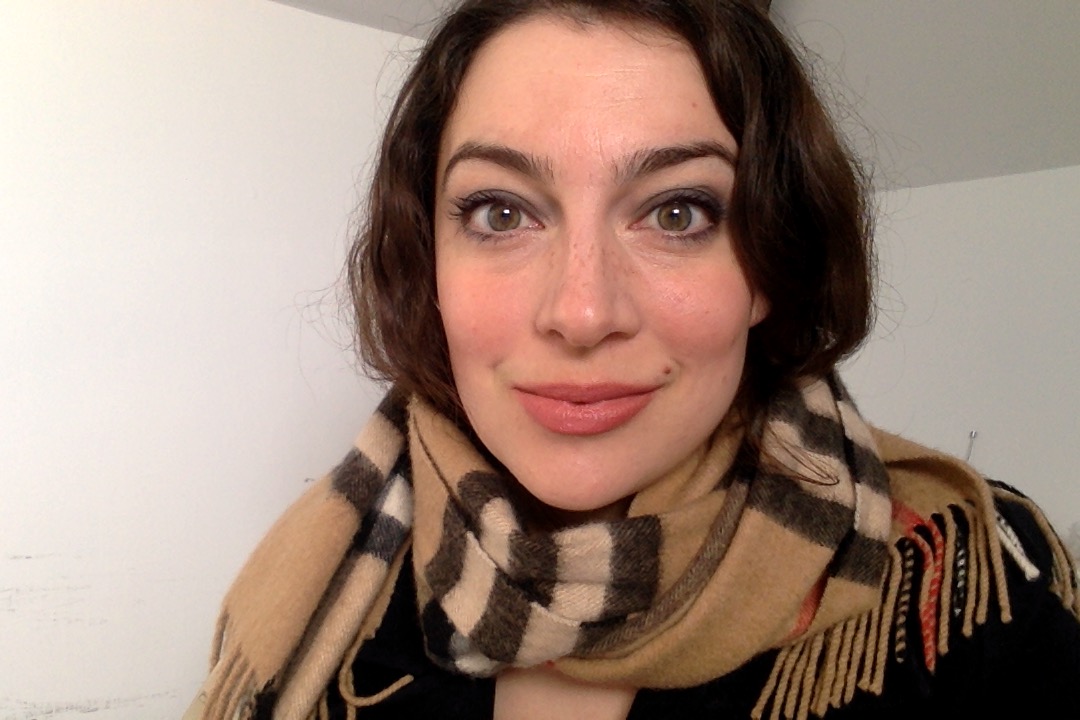
Caden, as viewed through the lens of the book, seems unexceptional: “He was small, no taller than me. His body was compact and carefully proportioned, like a jockey’s. He had a jockey’s face, too. Pliable and very pale.” But it isn’t long until she is completely consumed by him.
“The thing is,” she says, refilling my glass, “when you’re in love with someone, you’ve basically found a blank canvas on which to project your shit onto.” I was jangly with nerves on meeting her at Hamilton Square Station, because Lasley’s book is intimidatingly good. She’s already tactfully passed me a Vogue — the ultra skinny cigarette favoured by, as she observes, “people who enjoy pretending they don’t smoke” — on our walk over here. It half did the trick. She suggested wine; later I would suggest the second bottle. “It’s easier to project your shit onto a person with no personality at all than a person whose personality traits are going to get in the way of that projection.”
It didn’t help, Lasley points out, that she was at such a vulnerable moment in her life. She was what she calls “a scary age”: 34, the age I am now. She compares it to a person running for the train and everyone looking on: “Will she get married, will she have kids? Will she make it?” As the beginning of the book details, she weathered a perfect storm of mishaps: her laptop got stolen, and with it, the novel she’d been working on for four years — no back-up copy existed. She realised she needed to end things with her then-boyfriend (“it was a relationship that should have only lasted three weeks, but my speciality is turning things that should last three weeks into six years”), and quit her then-job as a journalist at a property magazine.
The logical next step, she says, would have been to move back home to her mum’s and spend a couple of years rebuilding her life. “Now I think I was on the verge of a breakdown all the way through that book.” She says that several times over the course of researching the book, doctors offered her antidepressants, but the last time she had taken them was aged 20, when the effects were more dulling than those of contemporary medication. “I always refused them because I felt they would blunt my writing.”

If Sea State is sharp on men, it’s sharper on class. The book doesn’t simply detail the affair, it’s also made up of a series of interviews with rig workers (she interviewed 103 men, and used ten main “characters” — based on ten real people, but with the odd quote pulled from other interviews) about life working in the oil industry. Lasley notes in the book that oil is one of the few trades left in Britain where working-class men (and the very few women who staff the rigs, too) stand to earn exceptional salaries.
A lot of rig workers hail from post-industrial communities, she says, where a lot of these old trades have real prestige, but most of the old trades beyond oil have died out. The men retain some of that glamour for her, too, because of the dangerous nature of the work. “I’ve met men who do offshore work on wind farms — it doesn’t quite have the same effect,” she deadpans. Then, of course, there’s the allure of their two-weeks-at-work, two-weeks-on-leave-schedule: the glamour of being the person who’s always got one foot out the door.
But while these men think of themselves as buccaneering and independent, the reality was a radically different story: “The men I know from rigs are among the neediest men I have ever met.” Apparently, rigs are populated by the sort of man who, on texting and not receiving a reply within the hour, will fire off another message: why haven’t you texted me? “Because they’re stuck out there with no women, they generally get fixated on female contact.”
But then again, she ended up in love with someone who worked on a rig. So what was the allure of Caden, the man she had the affair with? It was really all about timing, she suggests. Tabitha had travelled up to Aberdeen in February 2015 in order to get a sense of how feasible it might be to write the new book she had in her head. Her visit was effectively a scouting trip: she wanted to find out how easy it was to meet workers and secure interviews (later, she would interview most of the rig workers during the day, when they were often either travelling to or from work).
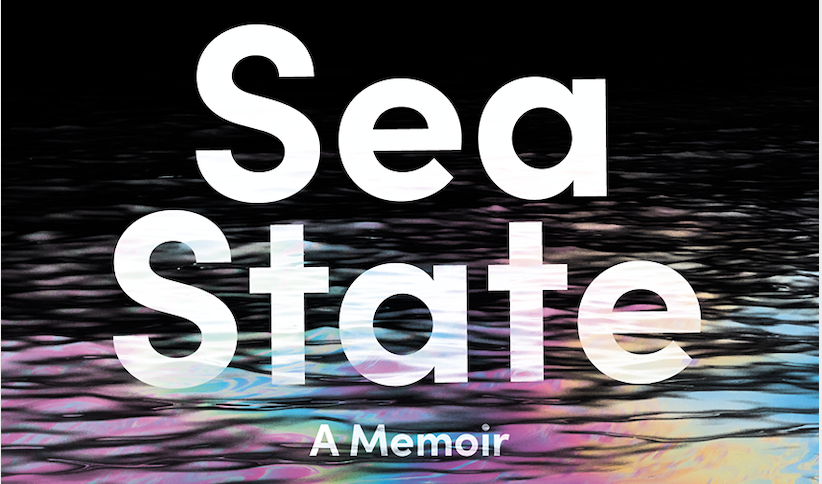
Caden was the very first man she spoke to in the city. “If he’d been the 18th or the 42nd or the 76th, we wouldn’t have had an affair.” Perhaps more crucially, he was also the first man she’d spoken to since her ex. “When you come out of a relationship like the one I left, and a man is nice to you, it has an incredibly powerful effect. I hadn’t had a single kind word for six years.”
In an interview published in the Los Angeles Times, Lasley acknowledges that at the time of the affair, Caden’s salary caused her to resent his wife, who she thought, as a stay-at-home wife and mother, had “such an easy life, compared to me, a childless woman in my 30s who works hard to pay my own bills”. The same interview reports that later, she felt differently: “If you’re consorting with a man who’s treating his wife badly, it’s a bit like crossing a picket line at a strike. I mean, go ahead and do it. But don’t call yourself a feminist.”
In the book, Caden behaves erratically, making and reversing grand romantic decisions seemingly on a whim. They meet in hotel rooms for five months before, seemingly out of nowhere, he leaves his wife and kids (via phone call) to move in with her. Eventually, he cuts off all contact with Lasley, without any explanation. When I ask if she thinks the ghosting was prompted by his wife’s divorce lawyer’s request for a settlement of four grand a month, she nods. Although he threw his money around and acted like a person who didn't care about money at all, in fact the opposite was true, she says: he derived his entire sense of self from money. “At the end of the day, I cost too much. He did not want the bill, basically.”
While she never heard from Caden again, the phone call in the book wouldn’t be the last she would hear from his wife. When a press release was issued for Sea State, her editor received a letter from Caden’s wife. The letter was “Just ‘my husband this, my husband that’.” His wife wrote that it would destroy his reputation. “I thought: what reputation?” They never heard anything else, which prompts her to conclude that Caden’s wife had decided the book wasn’t as bad as she expected. She theorises that the wife has a Google alert set for Lasley’s name: how else would she have come across the press release so promptly? “She's a wild woman. In a way, I quite like her.”
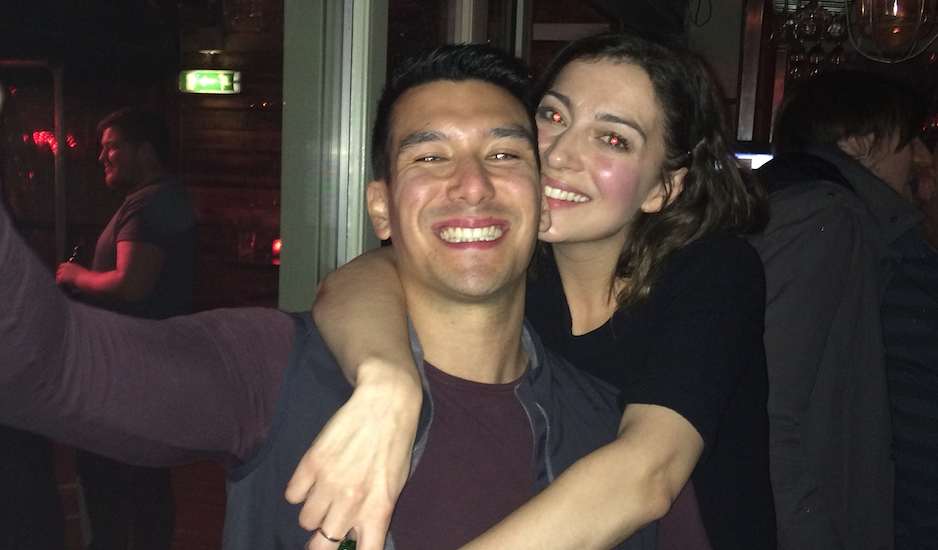
Men in the book seem prepared to tell Lasley absolutely anything. They tell her about their marriages, their frustrations, the bad sex they have, the great extra-marital sex they have. One even opens up about committing a murder. This was completely mystifying to me — up until the point of meeting Lasley and promptly word-vomiting out everything from my financial wranglings with my ex-landlord to my preferred type of therapy.
Possibly this is because she exudes the non-judgemental warmth of your favourite bartender. I mess up multiple times before we ever meet up. Interviews are scheduled and then cancelled at short notice. I get extremely off track on the way to meeting her (don’t ask) and show up late. It’s all fine, no big deal. She’s an open book, which encourages you to respond in kind.
So what did she learn from all these honest conversations with men? Nothing good, she says. She learned to be a lot more cynical, but that’s OK: “If you're not cynical by 41, there's something wrong with you.” Besides that, she started thinking more and more about how money shapes romantic relationships. It was something she’d already thought about in London, where friends in horrible marriages were unable to leave their partners because they were laden down with kids and a mortgage, and where she’d come to believe that this was the norm: “it's almost like Regency times where you're bound together for dynastic purposes, property purposes, rather than out of a 20th-century idea of love.”
But, to her discomfort, things weren’t so different hundreds of miles away from London. “What I learned from that book is whoever controls the bag, controls the marriage. Men can say ‘I’m really scared of my wife’ but if they're in control of the money, they'll be the boss of the marriage.” This situation is worsened, she thinks, by the fact that in areas of Britain where oil thrives, most of the well-paying jobs are in heavy industry, an overwhelmingly male-dominated sector, meaning that women will almost inevitably earn less.

There’s one part of the book where Caden tells her that the rules are different offshore, and I ask her what he meant by that. She explains that being the only woman interviewing a group of rig workers out drinking was weird — she was unprepared for how an entire group of men would compete for her attention (“Wasn’t that sort of scary?” I say palely, and Lasley’s eyes gleam: “I loved it!”). She’d chat to groups of oil rig workers who might not have seen a woman for two weeks (or three — the rotation pattern of two weeks on, two weeks off was upped to three weeks while she was there to save money).
What she didn’t factor in was the conversational physics at play: she could only give her attention to so many people at a time. She’d end up embroiled in chats with one guy more than the others — not necessarily the most good-looking, just the one she had the best connections with (“Obviously interviews are like any other form of human interaction, a lot of it’s down to chemistry”). There’d always be one man who didn’t feel he was getting enough attention, who was drinking, and things would turn ugly. There’s a great scene early on in the book where this happens:
‘You’re a whore. You’re easy.’
I looked at the man who had spoken. He was tall, with a square skull. Columns of ink crept above his collar.
‘I can’t be both,’ I said. ‘A whore is, by definition, not easy. You have to pay. So am I a whore, or am I easy? Which one is it?’
It was okay, though, she says. It upset her at the beginning, but she toughened up quickly. By the end, she’d just tell them, Shut up, nobody cares what you have to say.
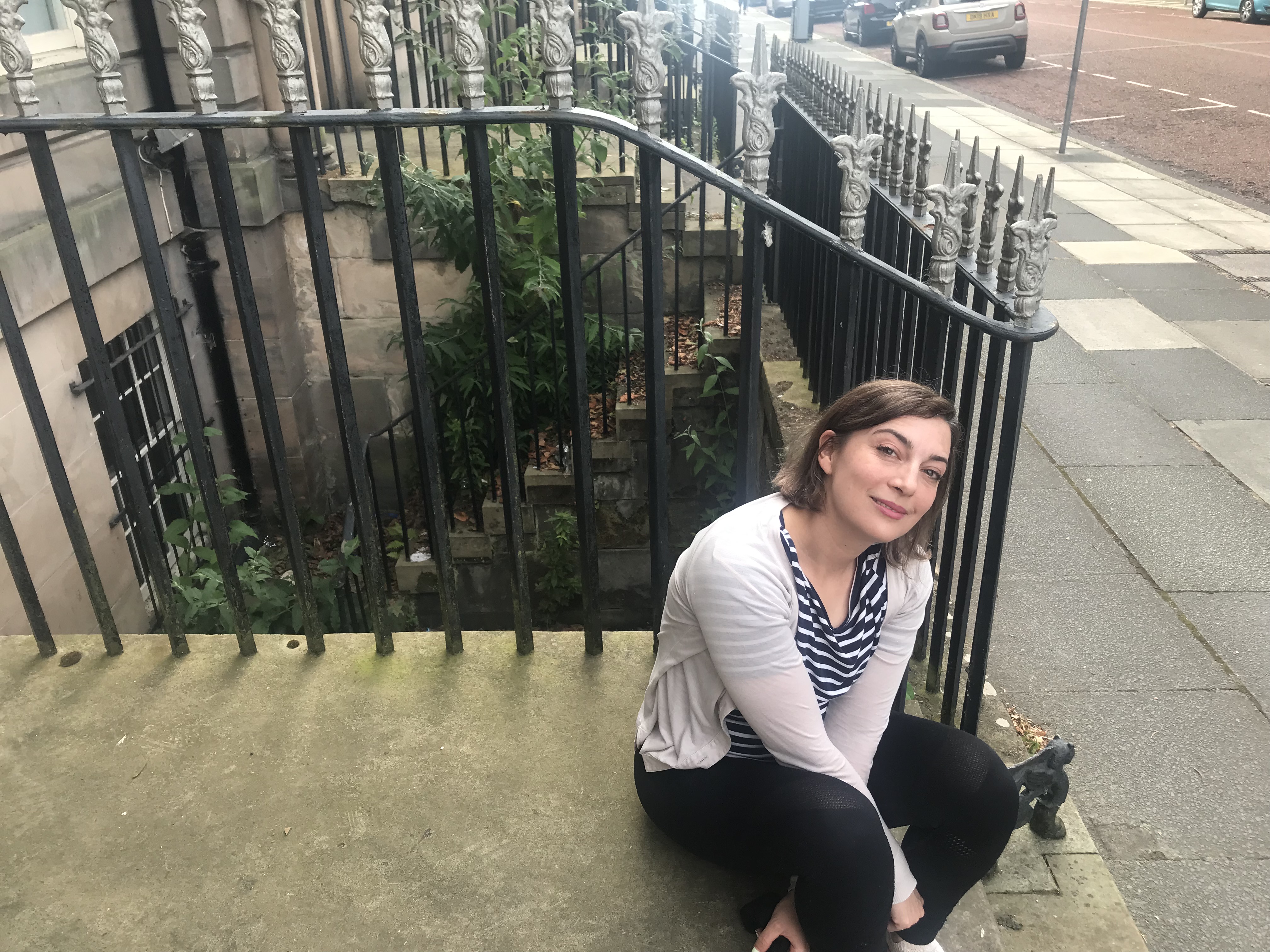
Hundreds of books are published each year and few receive the fanfare that Sea State has — publications like the New Yorker, the New York Times, the Guardian and the London Review of Books have raved about it, with the latter comparing her to essayist Joan Didion. The description doesn’t feel unearned: Sea State pulls off the magic trick I most associate with Didion of being incredibly bleak and funny all at once.
But maybe Lasley’s gender has obscured a more obvious comparison. Sea State feels at its most enjoyable in resurrecting an older form of journalism — the 1930s tradition, as performed in books like The Road to Wigan Pier or Down and Out in London and Paris (George Orwell) and English Journey (J.B. Priestley), of British authors exploring and writing about Britain as if it were a foreign country. What’s fun about Sea State is the way she turns this very masculine tradition on its head: the experience in question is that of being a mistress, something which feels like an intrinsically feminine occupation.
When I air my theory, Lasley agrees. “A mistress embodies all those qualities that we traditionally associate with femininity: passivity, sexual activity…the act of waiting.” The act of waiting? “When I grew up, you never asked a boy out, you'd wait for a boy to come to you. If a boy you liked didn't come to you, then nothing would ever happen.”
On a first read, it seemed like Sea State was about masculinity. But on digesting it, it became apparent that all the men and oil rigs were Russian doll-ing the book’s true central focus: women. Lasley nods vigorously when I say this. Her post-Aberdeen boyfriend, a Scouser, was the first person to read the book. “He always used to read it and say ‘This is a bird's book’, not as a pejorative.” What he meant, she explains, was that this was something women would read, even though it’s ostensibly about men. “And even now, when a man gets in touch to say he loved it, I'm always a bit surprised, because to me, it's a bird's book too. It's written by a woman, for women, men are window dressing.” After all, she says, it’s not about men — it’s about women looking at men.

It’s also, in the same stealth fashion, a book about Wirral. Despite the vast majority of the book taking place in Aberdeen, the novel is bookended by Wirral, where Lasley continues to live to this day — at the south of the peninsula. She explains this structure, saying that Sea State is about two people in their thirties who haven’t been able to grow up and find themselves, and instead, are still teenage versions of themselves. Since both the landscape and the culture of her hometown, Heswall, were so formative to her as a teenager, Wirral becomes a sort of subconscious to the book. We see this in the book’s powerful opening and closing scenes, both set in cars. “The car obsession feels central to life here: being able to drive. You simply cannot get around the Wirral if you don't have a car.”
There’s also the aesthetics of where she’s from. “These semi-rural areas with a high water table, you put your foot on a path and the indentation immediately fills with water, that was the landscape of my teenage years.” As such, life in such close proximity to water in Aberdeen, didn’t feel entirely alien to her. She attended West Kirby Grammar School, self-describes as lower-middle class (“Even though my name’s Tabitha”) and says that the boys she “knocked about with” while she was at school wanted to be electricians, plumbers, carpenters — she even knew a couple who went on to become rig workers. Perhaps because of this, the world of Aberdeen didn’t feel so far removed from what she’d already known.
When I ask her if she self-identifies as Scouse (her parents hail from Liverpool and moved to Wirral prior to having her), she laughs. The thing is, she says, that both herself and her sister are more likely to identify as Scousers than her parents are. “My parents are both Scousers but they find the whole sort of Scouse thing — the sentimentality, the self-mythologising — really embarrassing. Often people who leave Liverpool try and distance themselves from all of that while the people who stay will often derive a lot of their identity from the city.”
“I would say that we’re Scouse when it suits us,” she says, explaining her view of Wirral identity. “Getting exercised about Hillsborough, about Tories, then we’re Scouse. But if you actually dig into it, you will hit the abutment of a Wirral person’s entitlement quite soon.” But maybe that’s par for the course: she also describes the Wirral identity as more “shifting and amorphous” than its Liverpudlian counterpart, which she calls set in stone.
Lasley has no plans to ever leave Wirral: her friends are here, her family are here. She wakes up in the morning and on a clear day, she can see Wales from her bedroom window. “There’s a sense of openness here to the landscape, which I love.” One of the other compelling aspects of Wirral for Lasley is the fact that, despite its emptiness (she describes going for walks over lockdown and not encountering a single other person for hours) a person can’t really get lost here. It’s not like getting lost in London, she says, or the countryside, where there's a real danger. “Getting lost in the Wirral is a bit like when people lock themselves into one of those escape rooms. You’re lost, but you’re not really lost.”
You can buy your own copy of Sea State here.

Comments
Latest
Just what is happening with Peak Cluster’s CO₂ pipeline?
A ‘stitch up’? How Wirral council bungled Big Heritage
Merseyside’s buses are coming back into public hands. Why not trains too?
From Jimmy McGovern to Len McCluskey: The household names rallying behind Writing On The Wall’s employees
Sex, lies and crude oil
Wirral-born writer Tabitha Lasley headed to the North Sea rigs to find work — with life-changing consequences